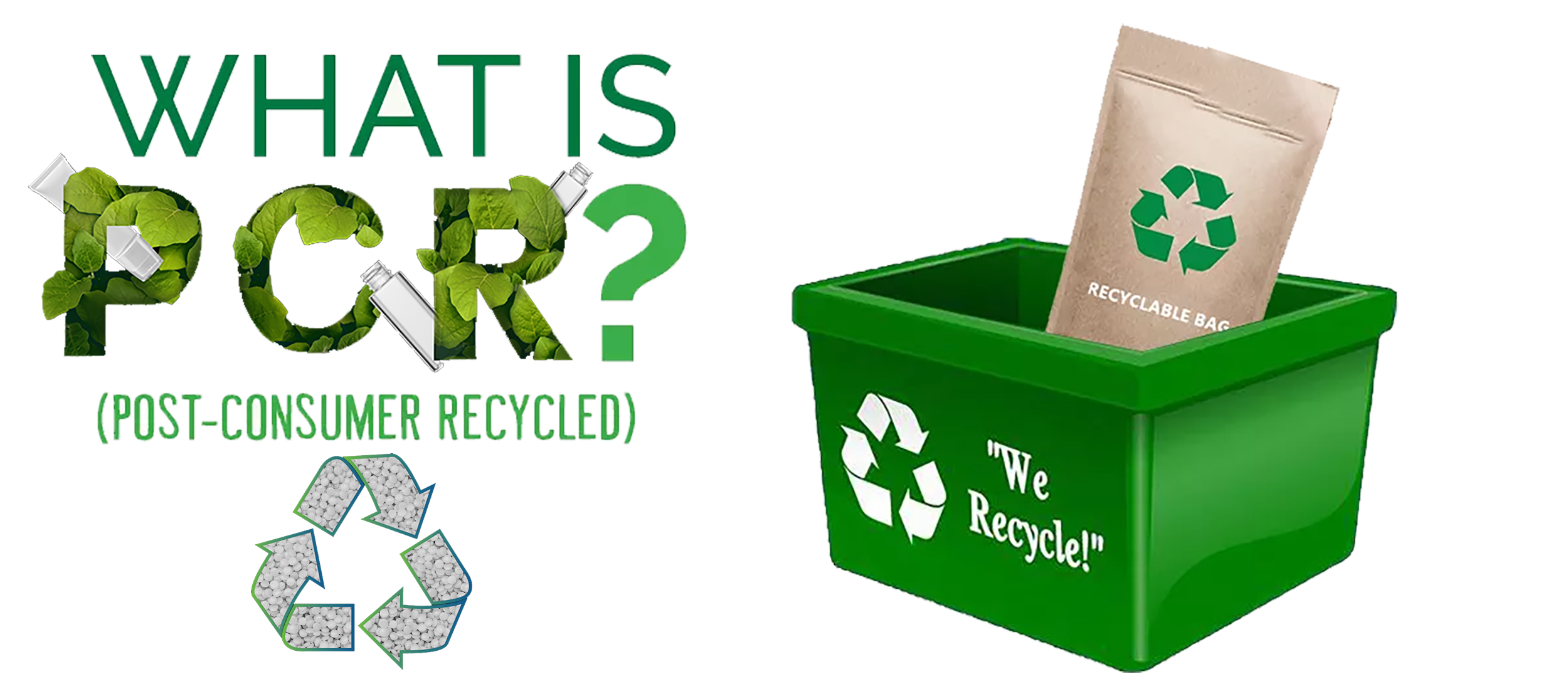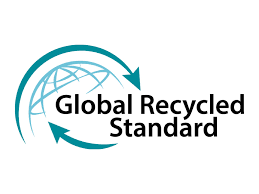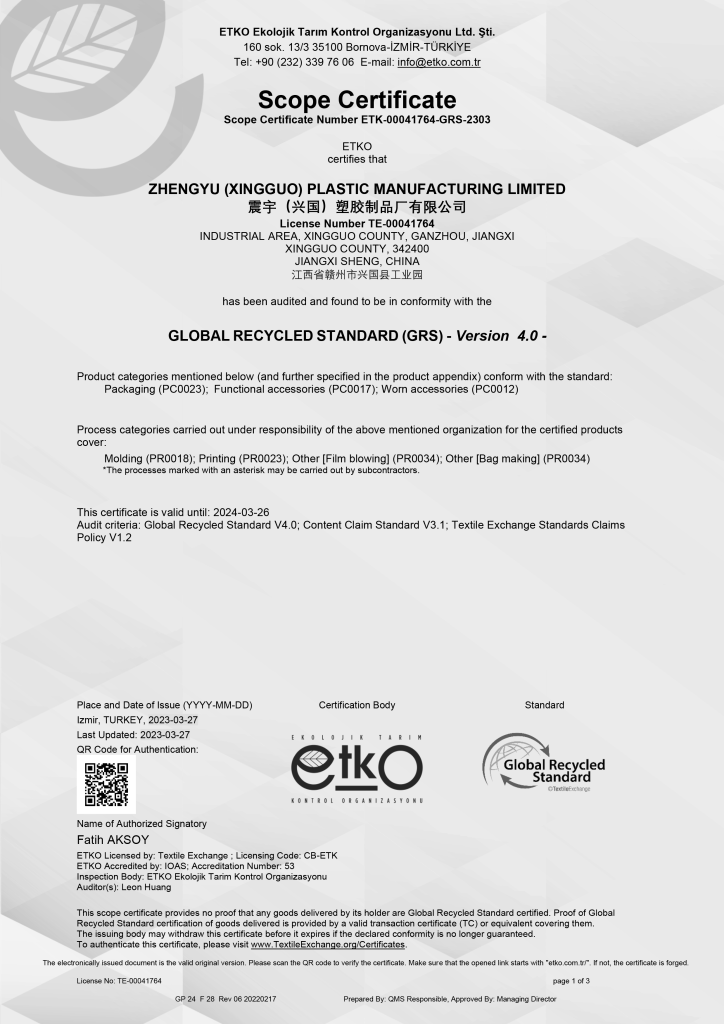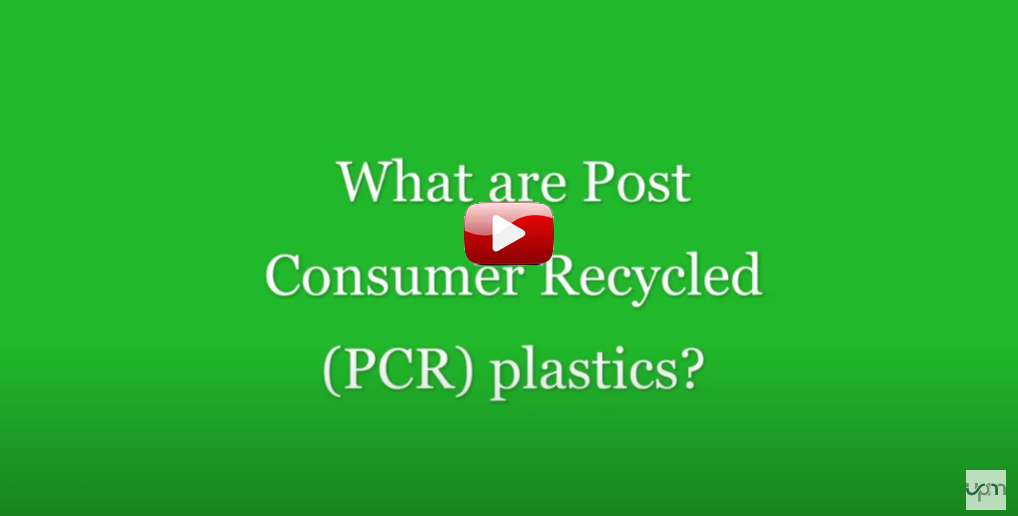Recycled & PCR Materials

Our Post-consumer recycled (PCR) plastics are a sustainable alternative to traditional plastics made from virgin materials. Post-consumer recycled plastics are produced and used in a safe and sustainable manner, meeting the quality and safety requirements of the industries and markets they are intended for.
Our post-consumer recycled plastics are available in a range of applications, from retail packaging to any non food contact use you may require, and are an important part of the circular economy, where materials are reused and recycled to reduce waste and conserve resources.
Our PCR bags are made from post-consumer materials, reducing the amount of plastic waste that ends up in landfills or the environment. They are also more durable and reusable than paper bags, which reduces the need for frequent replacements and saves resources in the long run.
Choose our recycled plastic bags for a reliable and eco-friendly option that meets your needs. Contact us today to learn more about our range of products and how they can benefit you and the environment.
There are several international standards that govern the use and production of post-consumer recycled plastics. Some of these standards include:
- ISO 15270: This standard outlines the general principles for the design and development of recycled plastic products and provides guidelines for their manufacture and use.
- ASTM D7611: This standard provides guidelines for the sorting and processing of post-consumer plastics for use in manufacturing new products.
- EN 13432: This European standard sets the requirements for compostable and biodegradable packaging made from post-consumer recycled plastics.
- RAL-GZ 716: This German standard provides guidelines for the use of recycled plastics in packaging and other products.
- The Plastics Recycling Foundation: This US-based foundation provides guidelines and resources for the use and production of post-consumer recycled plastics.
These standards help to ensure that post-consumer recycled plastics are produced and used in a safe and sustainable manner, and that they meet the quality and safety requirements of the industries and markets they are intended for.

The Global Recycled Standard (GRS) is a voluntary product standard for tracking and verifying the content of recycled materials in a final product. The standard applies to the full supply chain and addresses traceability, environmental principles, social requirements, chemical content and labeling.
The GRS covers processing, manufacturing, packaging, labelling, trading and distribution of all products made with a minimum of 20% recycled material.
Using recycled plastic bags over paper bags is known to be more environmentally friendly as they have a lower environmental impact in terms of energy consumption, water usage, greenhouse gas emissions, and waste generation.
While paper bags are biodegradable and can be recycled, they require much more energy and resources to produce and transport than plastic bags.
Recycled plastic bags, on the other hand, can be made from post-consumer materials, reducing the amount of plastic waste that ends up in landfills or the environment. They are also more durable and reusable than paper bags, which reduces the need for frequent replacements and saves resources in the long run. Additionally, plastic bags are often lighter and require less space to store and transport, which can reduce transportation emissions and costs.

Our GRS Certification
Paper Bag MYTHS
Paper bags are not as environmentally friendly as many people think because they have a significant impact on the environment in several ways:
Debunking the Myth of paper bags.
Paper bags are not as environmentally friendly as many people think because they have a significant impact on the environment in several ways:
- Production: The production of paper bags requires a significant amount of resources, including water, energy, and raw materials like trees. This results in a high carbon footprint and contributes to deforestation, soil erosion, and water pollution.
- Transportation: Like all products, paper bags need to be transported from the manufacturing site to the point of sale, which contributes to greenhouse gas emissions from transportation.
- Recycling: While paper bags are recyclable, the recycling process is energy-intensive and requires significant resources. Additionally, not all paper bags are recycled, and many end up in landfills, where they take up space and contribute to greenhouse gas emissions.
- Reusability: Unlike reusable bags, paper bags are typically used only once before being discarded. This means that more resources are needed to produce new bags, and more waste is generated.
Overall, while paper bags may seem like a more environmentally friendly option than plastic bags, they have their own environmental impacts and are not always the best choice. Reusable bags made from sustainable materials are a more eco-friendly option for carrying groceries and other items.
Choose our reusable bags made from sustainable materials for a reliable and eco-friendly option that meets your needs. Contact us today to learn more about our range of products and how they can benefit you and the environment.














